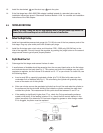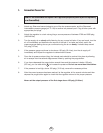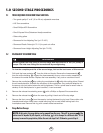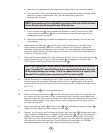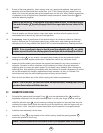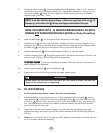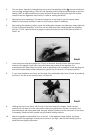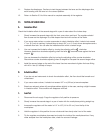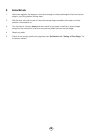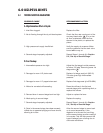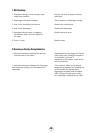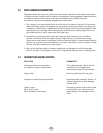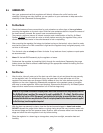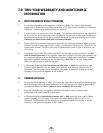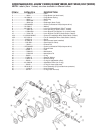
6.2 PARTS CLEANING RECOMMENDATIONS
Regulators which see heavy use, particularly those used in salt water, often require extra effort
to remove dirt and corrosion from the parts of the regulator. Some suggested cleaning solutions
are listed at the end of this section, and there are probably many others being used
successfully. Here are a few general suggestions we can make:
1. Don’t expect your cleaning solution to do all the work in a matter of seconds. If the solution
cleans extremely rapidly, it is probably too strong and is etching the finish on the parts. Use
a wooden or plastic stick or a
soft bristle brush to help get rid of the thickest deposits. Take
special care not to damage orifice sealing areas. Dress the orifice sealing areas with a fine
grit polishing stick or pencil eraser after drying the parts.
2. Immerse only those parts which really need cleaning. With Sherwood’s Dry Air Bleed
System, the interior of the first stage is always clean and dry, so the piston and spring
should never need cleaning. Immersing the clean Sherwood piston in contaminated cleaning
solution can plug the flow control element in the face of the piston, which could slow or stop
the flow through the positive air purge system.
3. Many of the solutions used for cleaning metal parts can damage the nitrile compounds
found in O-rings. For this reason, remove all O-rings before placing parts in a cleaning bath.
6.3 COMMONLY USED CLEANING SOLUTIONS
SOLUTION COMMENTS
Cleaning solutions recommended The preferred choice. Check with the
by ultrasonic cleaner manufacturers manufacturer for strengths and
recommended uses for their cleaners.
Soapy water Good for plastic and silicone parts.
Vinegar and water (equal part solution) Ingredients easily available. Approx. 15
minutes cleaning time. May damage
chrome finish.
1000 cc water Fast-acting solution that must be made
60 gr. sulfuric acid and used with care. Use gloves and
60 gr. potassium dichromate safety glasses. Can damage chrome
finish.
21



